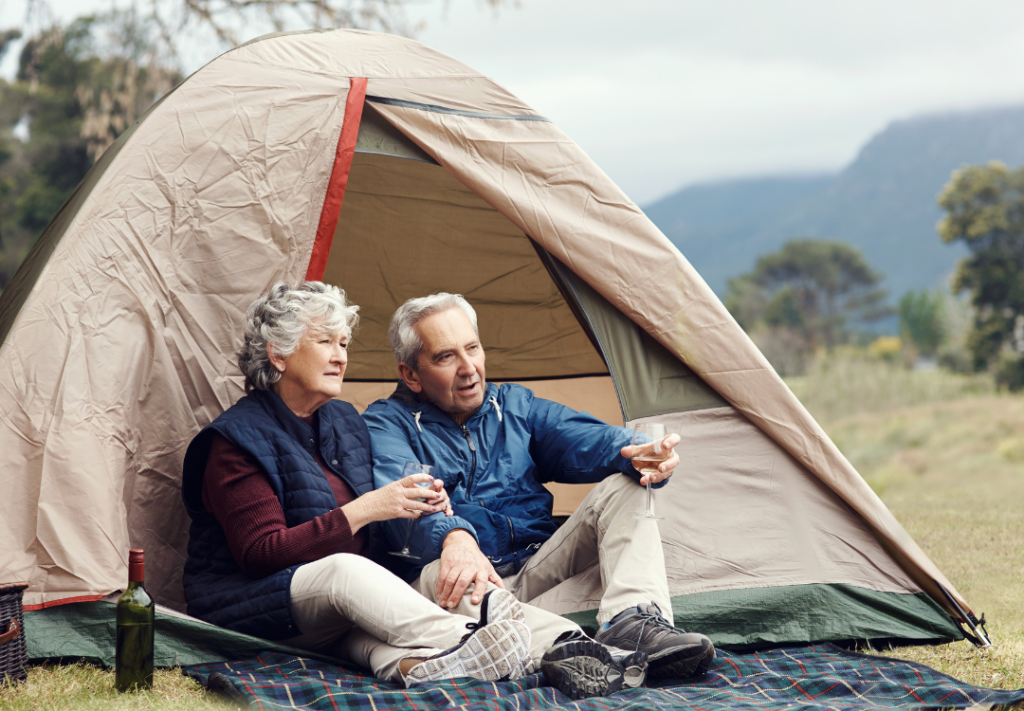For an entrepreneur eyeing the horizon of opportunities, the surge in RV travel isn’t just about the romance of the open road. It’s a clear indicator of a thriving market with immense growth potential. Yet investing in the RV park business requires not only capital but a deep understanding of this evolving market.
However, the RV park industry is not a one-size-fits-all venture. As this mode of travel diversifies, so do the business models catering to different RV travelers, ranging from those seeking luxury resorts to adventure-driven destinations.
Simultaneously, the rapid integration of digital technologies in the hospitality sector is redefining guest experiences and operational efficiencies. Today’s RV park entrepreneur needs to be aware of the various business models available and understand the transformative role of technology in the industry.
Whether you’re an aspiring entrepreneur or an established park owner, the insights below will illuminate the path to success in this booming sector.
The RV Park Industry Today: Growth and Resilience
The RV Park Industry has witnessed exponential growth in recent years. This upward trajectory can be attributed to a confluence of factors: the desire for more personalized and flexible travel experiences, a shift toward localized tourism, and the appeal of the open road amid expansive natural landscapes.
Moreover, the industry’s resilience during recent global upheavals -including the pandemic and the rise of inflation- has showcased its viability as both a travel and business option. Historical data shows that the RV park industry is both a luxury and a necessity and that it can thrive in both good and bad economic times.
Geographically, while the coasts have historically been hotspots for RV parks, there’s been a significant uptick in the number of parks in the heartland and mountain regions, mirroring the patterns of RV travel routes and evolving tourist interests.
The RV park industry is also highly fragmented and competitive, with no single operator dominating the market share. The industry consists of a variety of players, ranging from large corporations to small independent operators who own one or a few parks.
Catering to a Diverse Demographic

At the heart of this industry’s growth lies a heterogeneous mix of travelers.
From retirees embarking on their golden years adventures to young families wanting budget-friendly vacations, the spectrum of RV enthusiasts is vast. Digital nomads, attracted by the promise of freedom and connectivity, form a burgeoning segment. Other travelers are seeking new experiences and enjoy performing activities in the outdoors.
Understanding this eclectic group is pivotal for RV park entrepreneurs.
Retirees value a blend of social interaction and peaceful relaxation. They often seek prolonged stays, the emphasis may be on serene environments, community-centric activities, and easily accessible amenities.
Conversely, young families are more transient in their travels, making safety paramount. Play areas, family-friendly amenities, and proximity to local attractions can entice this demographic. The inclusion of kid-friendly programs and activities also adds to the allure.
For digital nomads, connectivity is key. RV parks that offer reliable Wi-Fi, dedicated co-working spaces, and networking opportunities distinguish themselves. It’s not just about a place to park but a space where work and leisure harmoniously co-exist.
Lastly, thematic enthusiasts, whether they’re into fishing, hiking, or any other pursuit, seek parks that complement their interests. Integrating these experiences, whether through amenities or partnerships with local businesses, can make all the difference.
In essence, successful RV parks are those that not only provide a spot to park but also resonate with the unique lifestyles and aspirations of their visitors.
Want to Grow Your Campground Business?
Book a FREE, personalized demo to learn about how RoverPass will save you time and help you earn more revenue
Challenges of the RV Park Business Model
Embarking on the RV park entrepreneurial journey promises abundant opportunities, but like any business, it presents its fair share of challenges.
Seasonal Dependency: One of the most pronounced challenges is the ebb and flow of guests based on the season. While summer months might witness a surge in occupants, winter could paint a stark contrast. Mitigating this involves diversifying offerings, like hosting events or offering discounted off-peak rates to attract guests year-round.
Infrastructure and Maintenance: Establishing an RV park demands substantial initial investments—from procuring land to setting up utilities. But beyond the onset, the consistent maintenance of facilities, roads, and amenities is a continual expenditure, demanding both time and resources.
Zoning and Regulations: The legal landscape of setting up an RV park can be intricate. Zoning laws, obtaining permits, and adhering to environmental standards are just a few regulatory mazes to navigate. Collaborating with local officials and legal consultants can streamline this process.
Customer Experience Consistency: With a diverse clientele comes varied expectations. Ensuring consistent high-quality experiences, irrespective of high or low seasons, is crucial. This involves regular staff training, soliciting feedback, and continually iterating on the service model.
Marketing and Visibility: Standing out amidst a sea of competitors is challenging. Building a robust online presence, leveraging social media, and investing in digital marketing is vital to ensure that your RV park garners attention.
Yet the role of digital technologies in the RV park business goes beyond all this.
From attracting new customers to improving management capabilities, digital solutions are essential to today’s businesses. Let’s take a closer look.
Embracing Digital Technologies in the RV Park Industry
The digital landscape has revolutionized the hospitality sector, with online travel agencies, booking systems, and compelling websites emerging as game-changers for RV parks. Today, these tools are integral to effective park management and crafting exceptional guest experiences.
In the era of instant gratification, guests prioritize swift and seamless booking experiences. Automated online reservation platforms cater to this need while offering RV park operators myriad benefits.
Real-time availability updates prevent overbookings, ensure optimal occupancy rates, and provide instant revenue insights. Furthermore, these systems allow for a streamlined guest onboarding process, ensuring that their stay begins on a positive note.
RV parks often list on multiple online travel agencies (OTAs) to widen their reach. Channel managers play a pivotal role here, synchronizing booking data across these platforms. This ensures real-time occupancy updates, eliminating overbookings and manual data entry, thus enhancing efficiency and ensuring a consistent guest booking experience across all platforms.
Finally, an RV park’s website serves as its digital storefront. It’s the first impression for many potential guests, making its design, functionality, and content crucial. An intuitive, visually appealing site can significantly impact booking conversion rates. Moreover, with integrated SEO practices, the website can draw organic traffic, increasing visibility and bookings.
With Roverpass Premium Website Builder, you can create a beautiful and effective website for your campground. Our experts will use SEO strategies and content creation techniques to ensure that your website is not only visually appealing but also informative and easy to use.
You can also seamlessly integrate your website with our campground reservation software, a powerful tool that will help you manage reservations and optimize operations.
Keep reading our blog for more insights on how to thrive in the RV park industry!









